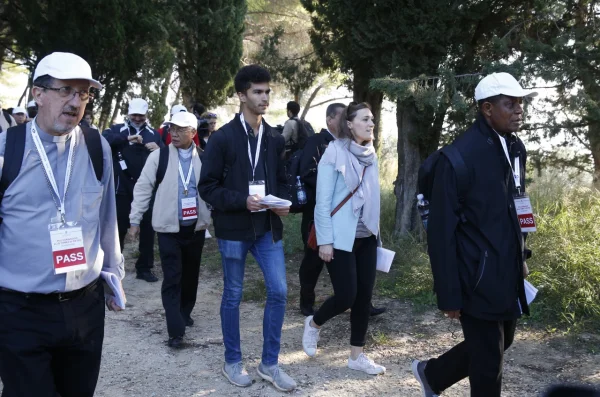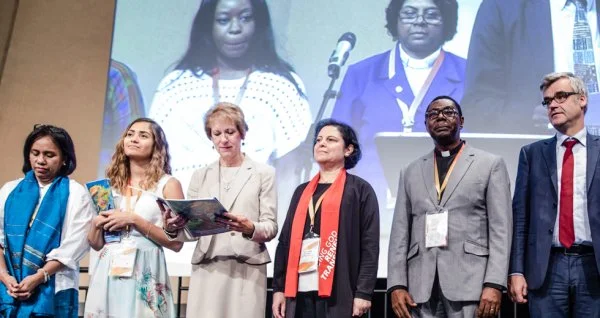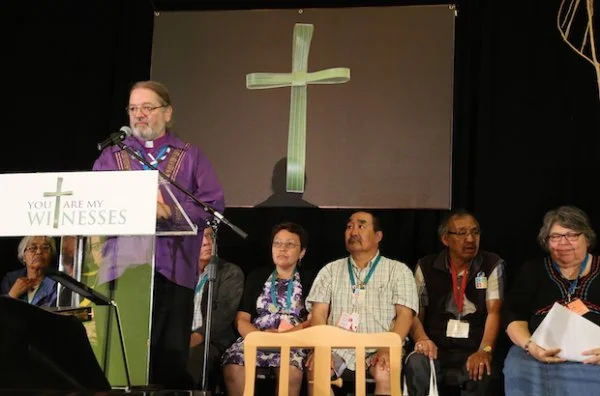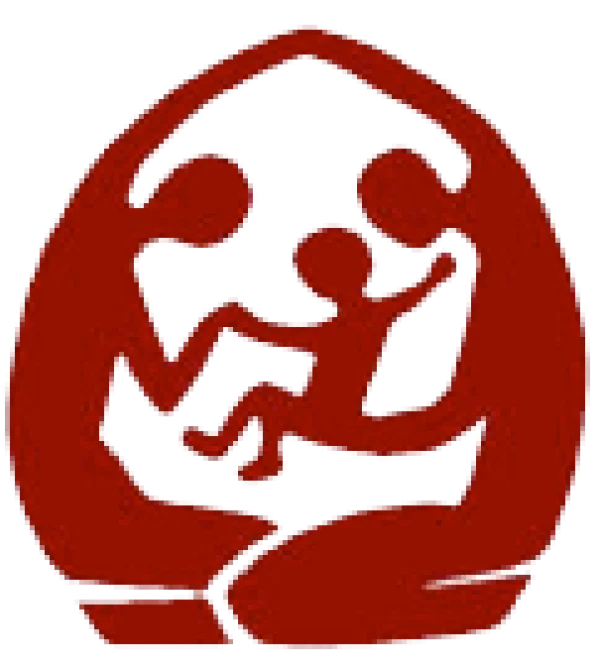- Français
- |
- Booklist
- |
- Week of Prayer
- |
- Links
- Areopagus - a forum for dialogue
- Academic journals
- Acronyms
- Bible tools
- Bibliographies
- Booksellers and publishers
- Churches
- Canadian church headquarters
- Directory of Saskatchewan churches
- Retreat centres
- Saskatchewan church and non-profit agencies
- Ecumenism.net Denominational links
- Anabaptist & Mennonite
- Anglican
- Baptist
- Evangelical
- Independent episcopal
- Lutheran
- Methodist, Wesleyan, and Holiness
- Miscellaneous
- Mormon
- Orthodox (Eastern & Oriental)
- Para-church ministries
- Pentecostal / charismatic
- Presbyterian & Reformed
- Quaker (Society of Friends)
- Roman & Eastern Catholic
- United and uniting
- Documents of Ecumenical Interest
- Ecumenical agencies
- Ecumenical Booklist
- Ecumenical Dialogues
- Glossary
- Human rights
- Inter-religious links
- Justice & peace
- Lectionaries
- Religious news services
- Resource pages
- Search Ecumenism.Net
- |
- Documents
- Ancient & Medieval texts
- Ecumenical Dialogues
- Interreligious
- Anabaptist & Mennonite
- Anglican
- Evangelical
- Lutheran
- Orthodox
- Reformed & Presbyterian
- Roman & Eastern Catholic
- United & Uniting
- Miscellaneous churches
- Canadian Council of Churches (CCC)
- Conference of European Churches (CEC)
- Interchurch Families International Network (IFIN)
- National Council of Churches in Australia (NCCA)
- Lausanne Committee for World Evangelism (LCWE)
- World Council of Churches (WCC)
- Other ecumenical documents
Church traditions
Documents from ecumenical agencies
- |
- Dialogues
- Adventist-Reformed
- African Instituted Churches-Reformed
- Anglican-Lutheran
- Anglican-Orthodox
- Anglican-Reformed
- Anglican-Roman Catholic
- Anglican-United/Uniting
- Baptist-Reformed
- Disciples of Christ-Reformed
- Disciples of Christ-Roman Catholic
- Evangelical-Roman Catholic
- Lutheran-Mennonite
- Lutheran-Mennonite-Roman Catholic
- Lutheran-Reformed
- Lutheran-Roman Catholic
- Mennonite-Reformed
- Mennonite-Roman Catholic
- Methodist-Reformed
- Methodist-Roman Catholic
- Oriental Orthodox-Reformed
- Orthodox-Reformed
- Orthodox-Roman Catholic
- Pentecostal-Reformed
- Prague Consultations
- REC-WARC Consultations
- Roman Catholic-Lutheran-Reformed
- Roman Catholic-Reformed
- Roman Catholic-United Church of Canada
- |
- Quick links
- Canadian Centre for Ecumenism
- Canadian Council of Churches
- Ecumenical Shared Ministries
- Ecumenism in Canada
- Interchurch Families International Network
- International Anglican-Roman Catholic Commission for Unity and Mission
- Kairos: Canadian Ecumenical Justice Initiatives
- North American Academy of Ecumenists
- Prairie Centre for Ecumenism
- Réseau œcuménique justice et paix
- Week of Prayer for Christian Unity
- Women's Interchurch Council of Canada
- World Council of Churches
- |
- Archives
- |
- About us
Archive for tag: synods
Archive pour tag : synods
The U.S. Conference of Catholic Bishops (USCCB) and the Canadian Conference of Catholic Bishops (CCCB) have issued the North American Final Document for the Continental Stage of the 2021-2024 Synod: For a Synodal Church: Communion, Participation, and Mission.
Begun in late 2022, the Continental Stage of the Synod was the second stage of the three-year process initiated by Pope Francis in October 2021. For the North American Continental Stage, the United States and Canada held twelve virtual assemblies: seven in English, three in Spanish, and two in French between December 2022 and January 2023. In total, 931 delegates and 146 bishops from Canada and the United States were appointed to participate in one of these twelve assemblies to share their reflections and responses to the Document for the Continental Stage (DCS) issued by the Holy See’s General Secretariat of the Synod in October 2022. Those reflections were brought together by the North American Writing Team to create the Final Document.
… Read more » … lire la suite »

 Permanent link: ecumenism.net/?p=13662
Permanent link: ecumenism.net/?p=13662
Categories: News • In this article: Catholic, synods

 Lien permanente : ecumenism.net/?p=13662
Lien permanente : ecumenism.net/?p=13662
Catégorie : News • Dans cet article : Catholic, synods
“Synodality,” a key concept of Pope Francis’ papacy, was used repeatedly in the final document of the Synod of Bishops on young people, the faith and vocation discernment. In simple terms, “synodality” means “walking together” with every member of the church, recognizing that the grace of baptism makes one part of the body of the church and, therefore, responsible for its life and mission. “The church must really let herself be given shape by the Eucharist that she celebrates as the summit and source of her life,” being like “the bread made from many stalks of wheat and broken for the life of the world,” the synod document said.
… Read more » … lire la suite »

 Permanent link: ecumenism.net/?p=10355
Permanent link: ecumenism.net/?p=10355
Categories: CNS • In this article: synodality, synods

 Lien permanente : ecumenism.net/?p=10355
Lien permanente : ecumenism.net/?p=10355
Catégorie : CNS • Dans cet article : synodality, synods
The Rev. Najla Kassab, a minister in the National Evangelical Synod of Syria and Lebanon (NESSL), has been elected president of the World Communion of Reformed Churches (WCRC), which groups more than 225 churches in over 110 countries.
“With her experience and many gifts, Najla’s vision, insight, spiritual strength and grace make her the right person to lead us forward as president,” said Alison McDonald, the moderator of a Nominating Committee that brought a slate of nominees for the WCRC Executive Committee to its General Council.
The elections took place on 7 July, the final day of the Council, which has been meeting in the eastern German city of Leipzig since 29 June. Of the 22 members of the new Executive Committee, 10 are men and 12 women; 15 are ordained and 7 are lay people. Five of the members of the Executive Committee are young adults under 30 years of age, including one of the vice-presidents.
… Read more » … lire la suite »

 Permanent link: ecumenism.net/?p=9739
Permanent link: ecumenism.net/?p=9739
Categories: News • In this article: synods, World Communion of Reformed Churches

 Lien permanente : ecumenism.net/?p=9739
Lien permanente : ecumenism.net/?p=9739
Catégorie : News • Dans cet article : synods, World Communion of Reformed Churches
The Russian Orthodox Church, whose boycott of a major summit of Orthodox Christian leaders in Crete last month threatened to slow down efforts to promote greater unity, has declared the meeting “an important event in the history of the conciliar process.”
The church’s synod, in its official reaction to the June 20-26 Holy and Great Council, also said the meeting could not be called “pan-Orthodox” because four of the 14 independent Orthodox member churches did not attend.
The Moscow Patriarchate, which represents between half and two-thirds of the world’s 300 million Orthodox, has been disputing the summit’s pan-Orthodox character since announcing its boycott in early June. Officials at the council said Russia’s Patriarch Kirill could not come to Crete because archconservatives in his ranks opposed it.
But the synod took a more positive approach by calling the session “an important event” and asking its theological commission to study the six documents the council approved and report back on its findings.
… Read more » … lire la suite »

 Permanent link: ecumenism.net/?p=9498
Permanent link: ecumenism.net/?p=9498
Categories: RNS • In this article: Great and Holy Council, Russian Orthodox, synods

 Lien permanente : ecumenism.net/?p=9498
Lien permanente : ecumenism.net/?p=9498
Catégorie : RNS • Dans cet article : Great and Holy Council, Russian Orthodox, synods
Assembly 2016 held in Saskatoon from July 6-10 may become known as a watershed year by delegates in attendance.
By turns intense and emotional, joyful and worshipful, the gathered made significant decisions that will impact the Mennonite Church Canada body of Christ for years to come.
On Thursday evening, delegates voted in favour of repudiating the Doctrine of Discovery – a settler teaching that has marginalized and taken rights away from indigenous people for centuries. While much education on the Doctrine of Discovery has already begun among congregations, much more is required.
On Saturday morning, 85% of delegates voted in favour of the Being a Faithful Church (BFC) recommendation to create space and test alternative understandings to traditional beliefs on committed same-sex relationships. Congregations who are asked to bless same sex marriages will now be given space to do so, even as the national family of faith continues testing to see if such discernment is a nudging of the Spirit of God.
… Read more » … lire la suite »

 Permanent link: ecumenism.net/?p=9364
Permanent link: ecumenism.net/?p=9364
Categories: News • In this article: human sexuality, Indigenous peoples, Mennonite Church Canada, synods

 Lien permanente : ecumenism.net/?p=9364
Lien permanente : ecumenism.net/?p=9364
Catégorie : News • Dans cet article : human sexuality, Indigenous peoples, Mennonite Church Canada, synods
Indigenous Anglicans took another step on the road toward self-determination July 10 when General Synod received two documents presenting the goals, objectives and features of a fully Indigenous province within the Anglican Church of Canada.
In a PowerPoint presentation titled Unique Features of an Indigenous Province: The Confederacy of the Indigenous Spiritual Ministry, Indigenous ministries co-ordinator Canon Virginia “Ginny” Doctor outlined 13 qualities a self-determining Indigenous Spiritual Ministry should have.
While some of the features were fairly aspirational long-term goals, such as “better relationships between Indigenous communities and with settler communities,” and “high value on elders and youth,” others were more immediate.
… Read more » … lire la suite »

 Permanent link: ecumenism.net/?p=9399
Permanent link: ecumenism.net/?p=9399
Categories: Anglican Journal • In this article: Anglican Church of Canada, Indigenous peoples, synods

 Lien permanente : ecumenism.net/?p=9399
Lien permanente : ecumenism.net/?p=9399
Catégorie : Anglican Journal • Dans cet article : Anglican Church of Canada, Indigenous peoples, synods
The Interchurch Families International Network, a loose network of groups of interchurch families from across the world, has submitted a response to one of the questions posed by the Vatican in its preparatory document – “Does current legislation provide a valid response to the challenges resulting from mixed marriages or interreligious marriages?” Following the circulation of an initial late last year a number of comments were received and a final paper was submitted to Cardinal Baldisseri at the Synod Office in Rome by the co-ordinator of the network, Professor Thomas Knieps of Leuven University in Belgium.
… Read more » … lire la suite »

 Permanent link: ecumenism.net/?p=8480
Permanent link: ecumenism.net/?p=8480
Categories: Documents • In this article: family, interchurch families, sacramental sharing, synods, Vatican

 Lien permanente : ecumenism.net/?p=8480
Lien permanente : ecumenism.net/?p=8480
Catégorie : Documents • Dans cet article : family, interchurch families, sacramental sharing, synods, Vatican
The Inter-Anglican Standing Commission on Unity, Faith and Order (IASCUFO) has urged the Anglican Church of Canada not to amend its marriage canon (church law) to allow the marriage of same-sex couples, saying such a move would “cause great distress for the Communion as a whole, and for its ecumenical relationships.” The IASCUFO’s statement came in response to a request from the Canadian church’s Commission on the Marriage Canon for an opinion about proposed changes to Canon 21 that would allow for same-sex marriages. Canon Kenneth Kearon, secretary general of the Anglican Communion, decided IASCUFO would be the “most appropriate” body within the Communion to deal with such a question. The Anglican Church of Canada has the prerogative “to address issues appropriate to its context,” the IASCUFO said, but it noted the ramifications of “a change of this magnitude” for the Communion and its ecumenical partners. In a letter addressed to Canon Robert Falby, chair of the marriage canon commission, IASCUFO members said they were unanimous “in urging you not to move beyond your present policy of ‘local option.’ ” They noted that the absence of a General Synod decision about the blessing of same-sex unions or same-sex marriages “has given space for the rebuilding of fragile relationships across the Communion.”
… Read more » … lire la suite »

 Permanent link: ecumenism.net/?p=7929
Permanent link: ecumenism.net/?p=7929
Categories: Anglican Journal • In this article: Anglican Church of Canada, Anglican Communion, human sexuality, IASCUFO, marriage, synods

 Lien permanente : ecumenism.net/?p=7929
Lien permanente : ecumenism.net/?p=7929
Catégorie : Anglican Journal • Dans cet article : Anglican Church of Canada, Anglican Communion, human sexuality, IASCUFO, marriage, synods
In his Presidential address to the General Synod today, Archbishop Justin spoke about the issues faced by the Anglican Communion and possible ways forward. “During the last eighteen months or so I have had the opportunity to visit thirty-six other Primates of the Anglican Communion at various points. This has involved a total of 14 trips lasting 96 days in all. I incidentally calculated that it involves more than eleven days actually sitting in aeroplanes. This seemed to be a good moment therefore to speak a little about the state of the Communion and to look honestly at some of the issues that are faced and the possible ways forward.”
… Read more » … lire la suite »

 Permanent link: ecumenism.net/?p=8813
Permanent link: ecumenism.net/?p=8813
Categories: ACNS • In this article: Anglican Communion, Archbishop of Canterbury, Church of England, Justin Welby, synods

 Lien permanente : ecumenism.net/?p=8813
Lien permanente : ecumenism.net/?p=8813
Catégorie : ACNS • Dans cet article : Anglican Communion, Archbishop of Canterbury, Church of England, Justin Welby, synods
Upholding the Christian ideal of marriage and family life while also reaching out to those whose lives do not reflect that ideal is a pastoral challenge faced by all Christian communities, said the Anglican representative to the Synod of Bishops.
Anglican Bishop Paul Butler of Durham, England, and “fraternal delegates” from seven other Christian communities addressed the synod Oct. 10. Bishop Butler also spoke to Vatican Radio Oct. 15 as synod members worked in small groups to amend the assembly’s midterm report.
He told members of the synod that he and his wife have been married 32 years and have four grown children. Although Anglicans have married bishops and clergy, “like you,” he told them, Anglicans “are wrestling with how best to respond” to the challenges facing family life around the world.
“As part of this response,” he said, “we want to speak more of the promise of and hope from the family than focus on the threats,” while also making it clear that “marriage is between a man and a woman and is intended to be for life.”
… Read more » … lire la suite »

 Permanent link: ecumenism.net/?p=7862
Permanent link: ecumenism.net/?p=7862
Categories: CNS • In this article: Anglican, Catholic, family, Lutheran, synods

 Lien permanente : ecumenism.net/?p=7862
Lien permanente : ecumenism.net/?p=7862
Catégorie : CNS • Dans cet article : Anglican, Catholic, family, Lutheran, synods
On his return from Jerusalem, where he met with Pope Francis at the Holy Sepulchre, the Ecumenical Patriarch of Constantinople, Bartholomew I, has revealed an important appointment for unity between Catholics and Orthodox: a gathering at Nicaea in 2025, where the first real ecumenical council of the undivided Church was celebrated.
Speaking exclusively with AsiaNews, Bartholomew says that together with Pope Francis “we agreed to leave as a legacy to ourselves and our successors a gathering in Nicaea in 2025, to celebrate together, after 17 centuries, the first truly ecumenical synod, where the Creed was first promulgated”. The Council of Nicaea (now Iznik, 130 km south-east of Istanbul), brought together more than 300 bishops from East and West in 325 and is considered the first true ecumenical council. It was there that the formula of the Creed was decided, similar to the one recited during the liturgy today, saying that Jesus “is consubstantial to the Father,” to counter the Arian ideology.
… Read more » … lire la suite »

 Permanent link: ecumenism.net/?p=7670
Permanent link: ecumenism.net/?p=7670
Categories: News • In this article: 1700th anniversary, Bartholomew I, Catholic, Nicaea 2025, Orthodox, Pope Francis, synods

 Lien permanente : ecumenism.net/?p=7670
Lien permanente : ecumenism.net/?p=7670
Catégorie : News • Dans cet article : 1700th anniversary, Bartholomew I, Catholic, Nicaea 2025, Orthodox, Pope Francis, synods
By the grace of God, the proceedings of the Synaxis of the Primates of the Orthodox Autocephalous Churches concluded today, on the Sunday of Orthodoxy. The Synaxis took place at the Phanar from 6-9 March, 2014, at the invitation and under the presidency of His All-Holiness Ecumenical Patriarch Bartholomew, and was attended by all the most venerable Primates in person, with the exception of His Beatitude Patriarch John of Antioch, who, due to illness, was represented by Hierarchs of his Church.
The proceedings of the Synaxis were carried out in a very fraternal spirit; the Hierarchs discussed maters concerning the life of the Orthodox Church in the contemporary world, and particularly in regions where Orthodoxy and Christianity in general face serious problems and difficulties; the Hierarchs also expressed their support and profound interest of the Orthodox Church in its entirety concerning their fellow human beings suffering in those regions. Above all, the Synaxis considered the prevailing situation in the Middle East and recent developments in Ukraine, as well as the ongoing uncertainty about the fate of the bishops, Metropolitan John of Aleppo, and Yuhanna Ibrahim of the Syriac Church, who were kidnapped by unknown persons a very long time ago.
… Read more » … lire la suite »

 Permanent link: ecumenism.net/?p=7540
Permanent link: ecumenism.net/?p=7540
Categories: Communiqué, News • In this article: Orthodox, synods

 Lien permanente : ecumenism.net/?p=7540
Lien permanente : ecumenism.net/?p=7540
Catégorie : Communiqué, News • Dans cet article : Orthodox, synods
by Paul Waters, Montreal Gazette VATICAN CITY – It would be premature for Catholic bishops to apologize for the persecution of Jews through the centuries, according to Cardinal Johannes Willebrands, president of the Secretariat for Christian Unity. A petition circulated among Roman parishes in the last few weeks asks the 165 bishops from around the
… Read more » … lire la suite »

 Permanent link: ecumenism.net/?p=6423
Permanent link: ecumenism.net/?p=6423
Categories: News • In this article: bishops, Catholic, synods, Vatican

 Lien permanente : ecumenism.net/?p=6423
Lien permanente : ecumenism.net/?p=6423
Catégorie : News • Dans cet article : bishops, Catholic, synods, Vatican











